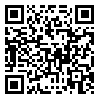Volume 20, Issue 57 (6-2020)
jgs 2020, 20(57): 125-145 |
Back to browse issues page
Download citation:
BibTeX | RIS | EndNote | Medlars | ProCite | Reference Manager | RefWorks
Send citation to:



BibTeX | RIS | EndNote | Medlars | ProCite | Reference Manager | RefWorks
Send citation to:
razjouyan M, motavali S, janbaz ghobadi G. (2020). Organizing Coastal Land Use for Urban Tourism Development (Case Study: Sorkhrood). jgs. 20(57), 125-145. doi:10.29252/jgs.20.57.125
URL: http://jgs.khu.ac.ir/article-1-3266-en.html
URL: http://jgs.khu.ac.ir/article-1-3266-en.html
1- , sadr_m1970@yahoo.comk
Abstract: (7892 Views)
Tourism with a wide range of environmental, economic, social and physical impacts is one of the factors affecting the pattern of land use which, depending on the region's ability to attract tourists, as well as the type, volume and forms of tourism, the intensity and quality of this change effect varies. One of the many factors that can affect sustainable urban development is tourism and its consequences, so that a comprehensive study of the implications of tourism development in a metropolitan area needs to be considered as a sustainable urban development. The method of research is after collecting field information. Using a completed questionnaire, SPSS software is used to analyze the data. Then, using descriptive and inferential statistics, we analyze the relationships between the variables. And also, to show the results of analytical and descriptive data GIS and Excel software were used. Finally, in GIS software environment, the zoning of the best places for tourism development will be analyzed. The results of this research show that from the perspective of half of the officials and government experts, the expansion of tourism industry, on one hand, causes the region's economic prosperity and, on the other hand, reduces regional security and causes pollution of the environment.
Type of Study: Research |
Subject:
Geography and Urban Planning
Send email to the article author
| Rights and permissions | |
 |
This work is licensed under a Creative Commons Attribution-NonCommercial 4.0 International License. |

This work is licensed under a Creative Commons — Attribution-NonCommercial 4.0 International (CC BY-NC 4.0)






